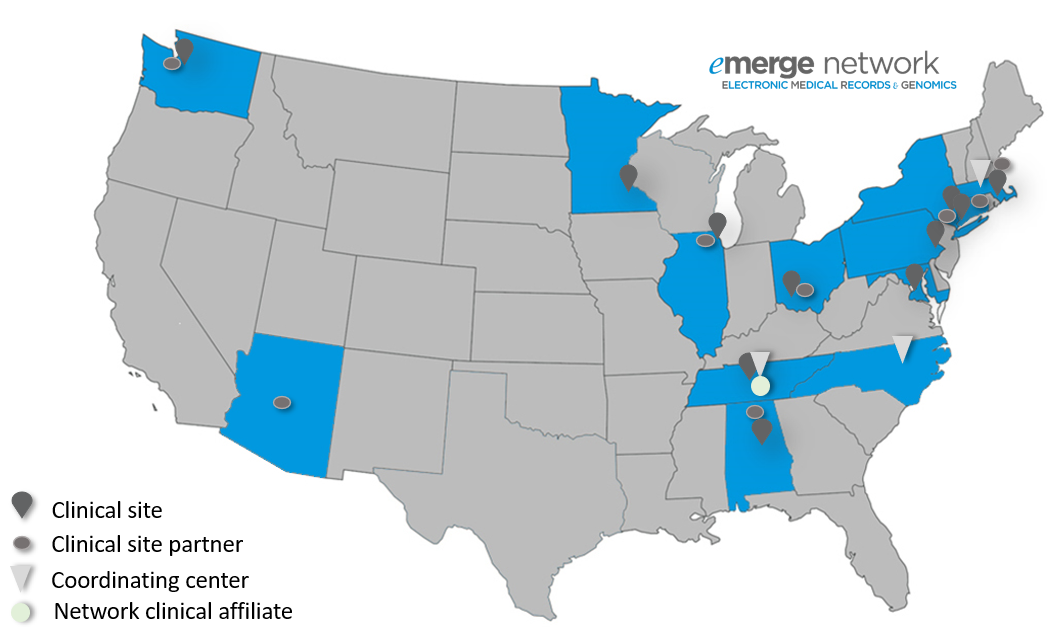eMERGE is a national network organized and funded by the
National Human Genome Research Institute (NHGRI) that combines DNA
biorepositories with electronic medical record (EMR) systems for large
scale, high-throughput genetic research in support of implementing genomic
medicine.

Many factors contribute to risk of a disease. Some of these factors are internal,
like genetics, and others are external, like where someone lives. Over the last several years
researchers have discovered that in addition to one gene being associated with a given
disease (monogenic factors), many genes across your genome can contribute to the development
of a disease (polygenic factors). To learn more about elements that contribute to risk a disease,
click here.
Latest News
NOSI: Supporting the Exploration of Cloud in NIH-supported Research
April 4, 2024 4:31 PM
NOITPs are published
April 4, 2024 4:30 PM
eConsult NOFOs released
January 1, 2024 7:19 PM
Research Training at NIH: Upcoming virtual information sessions (Postbac, Grad, Summer, Postdoc)
November 11, 2023 8:34 PM
Informational Webinar on ELSI PARs – 12/11/23 at Noon
November 11, 2023 3:08 PM
Everything You Ever Wanted to Know About Applying for NIH Grants (But Were Afraid to Ask)
September 9, 2023 3:16 PM
Recent Publications
Mosley JD, Shelley JP, Dickson AL, Zanussi J, Kawai VK, et al. Clinical associations with a polygenic predisposition to benign lower white blood cell counts. Nature communications. 2024 Apr 22;15(1):3384.
Middha P, Thummalapalli R, Betti MJ, Yao L, Ziv E, et al. Polygenic risk score for ulcerative colitis predicts immune checkpoint inhibitor-mediated colitis. Nature communications. 2024 Mar 26;15(1):2568.
Katsumata Y, Fardo DW, Shade LMP, Wu X, National Alzheimer's Coordinating Center, et al. Genetic associations with dementia-related proteinopathy: Application of item response theory. Alzheimer's & dementia : the journal of the Alzheimer's Association. 2024 Apr;20(4):2906-2921.


